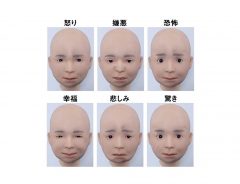- Tags:
- aging society / crime / Elderly
Related Article
-

Japanese Twitter user shares unexpected reaction to maskless elderly bus passenger
-

Old Age in The Land of The Rising Sun
-

Tourist Tests Japan’s Reputation For Safety and Gets More Than He Bargained For
-

Viral Tattoo Photo Lead To Arrest Of Yakuza Boss On The Run For 14 Years
-

Robotics Bringing New Comfort for Lonely Seniors
-

Criminal arrested after Fatal Stabbing on Friday: 20-year-old woman murdered in Niigata



Recently, in Five Stupid Ways To Get Arrested in Japan, we mentioned the KDDI caller, a pensioner who was arrested after placing nearly 24,000 complaint calls to his telephone operator KDDI. In other reports, we covered incidents involving obstructive customers at panic-buying affected pharmacies. The common thread to both stories: an increasing number of elderly citizens behaving brazenly, and at times, flouting the law.
Lopsided Demographics
Japan has dire demographics. Since 2009, the nation's population has been in decline, falling from 128.56 million to an expected 126.48 million by the end of 2020. While this implies a shock to the economies of scale, the rate of births continues to fall. In 2019, the metric hit 1.4 births per woman, its lowest point since data collection began in 1899. Public efforts to affect the fertility rate have heretofore been mostly ineffective.
Although the cause (or causes) of this population decline is difficult to pinpoint, many suggest that the economy and the overall outlook for jobs may be to blame. As exploitative, "black," companies become more commonplace, employees are beginning to struggle to find stable, well-paying work. Understandably, as purse-strings tighten, married couples feel apprehensive about the financial pressures of providing for a large family. Paradoxically, a contracting amount of available labor has yet to affect the situation positively.
For these reasons, many consider Japan a graying nation, and with the oldest population in the world, they would be right in thinking so. Individuals over 65 make up about 25% of the population, and that figure is expected to grow to 38.8% by 2050. According to Hisakazu Kato, a population economics specialist and professor, the growing dependency of elderly residents coupled with a shrinking tax base implies disaster for the welfare system. As it turns out, the famed longevity of Japan is becoming something of a curse.
In recent history, these lopsided demographics and portentous figures are working their way through the broader economy. Tech companies are investing in elderly targeting initiatives while food markets develop nearby parking for servicing limited mobility customers. Confoundingly, the sale of adult diapers has long since passed the purchase of baby diapers. As current trends progress, other economic imbalances will assuredly make themselves known.
Pension System in a Pinch
Since the asset bubble collapse in 1991, Japanese economic performance has been underwhelming. Consumption remains far from its 1980 highs, the quality of jobs has decreased as wages stagnated, and, of course, the number of births has dropped.
Amid the larger picture of economic malaise and population disparities, the promises of the national pension systems have mainly become untenable. In its recent revision of the public pension future outlook, a report that occurs every five years, the Ministry of Health, Labor, and Welfare admitted that the balance between beneficiaries and supporters is expected to worsen. According to officials, a worst-case scenario could see benefits replacing only 36-38% of a pensioner's pre-retirement salary by 2043.
Such dire predictions led the Financial Services Agency to report that pension benefits will soon not be enough to live on through retirement. The advisory council also claimed that household savings of 20 million JPY ($200,000) would likely be necessary and that many retired couples would face financial shortfalls.
Increasing Crime Rates Among the Elderly
So, why are more elderly citizens engaging in anti-social and criminal behavior? Given the scenario presented above, the answer may be surprisingly, albeit depressingly, straightforward.
Toshio Takata, a 70-year-old convict, admitted to the BBC that he broke the law and was arrested because he was poor. "I reached pension age and then I ran out of money. So it occurred to me – perhaps I could live for free in jail," the pensioner said. "So I took a bicycle and rode it to the police station and told the guy there: 'Look, I took this.'"
Takata received a one-year sentence following the incident. Nevertheless, following his release, he committed other crimes. The pensioner, who was law-abiding until the age 62, has now spent the last decade in and out of jail. Pension benefits continue to accrue during Takata's stints in jail, so upon release, he is introduced to a halfway house with a certain amount of money in savings.
Takata is not alone. Over the last twenty years, the number of crimes committed by the elderly has steadily increased. According to the National Police Agency, 5.8% of arrests in 2005 involved seniors, representing a 20% increase over the previous decade.
Ironically, prisons are being forced to accommodate the number of senior inmates they find themselves with. The responsibilities of prison staff are changing as they are forced to help prisoners bathe and get changed. The adjustment has led some to draw a comparison between prisons and nursing homes.
According to researcher Yuki Shinko, older people feel lonely, bored, and unafraid of legal ramifications. As retirees increasingly face dire financial situations, many begin to see prison as an improvement to their daily lives. After all, there is guaranteed shelter, three meals a day, and health check-ups. As seniors struggle to find a place in society, they may increasingly look to spend their golden years behind bars.